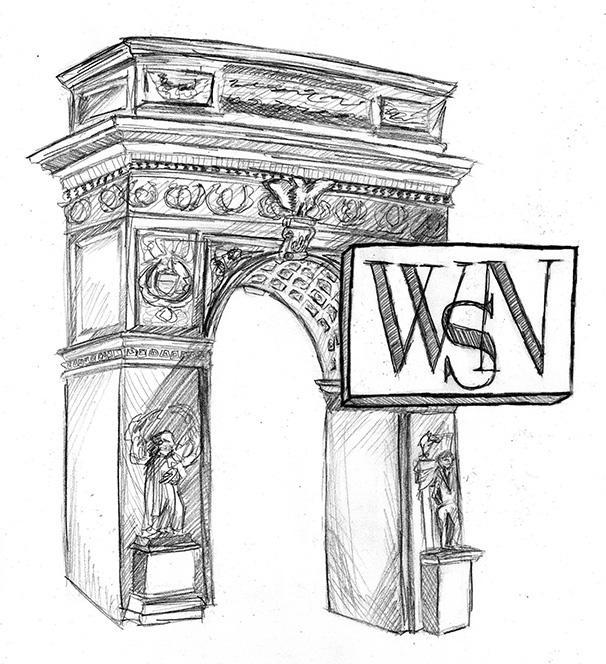Since beginning his tenure as NYU’s president, Andrew Hamilton has stated that making the university affordable is his top priority. This has manifested in a number of ways — NYU has implemented a minimum wage for all student employees, and financial aid increased from an average of $22,500 per student in 2016 to just under $25,000 in 2017. But NYU’s recently-uncovered tax returns, in addition to its long-standing practice of using university funds to further the administration’s interests (like recruitment, performance bonuses and expansion) over those of its students introduces a paradox. Hamilton may say that affordability is a priority, but by allocating the university’s funding to the interests of higher-ups and away from those of students, NYU makes itself less affordable.
It’s no secret that Hamilton’s salary is astronomical. The university’s tax returns showed that the president collects a $1.8 million salary and an annual $250,000 performance bonus, which totals to $2.05 million annually. Though Hamilton’s salary isn’t exceptional among presidents of similarly elite universities, his purported emphasis on affordability is. He doesn’t have to, and shouldn’t, accept all the money being given to him. There is precedent for a university president to decline both a salary increase and a performance bonus. In 2008, Cornell University President David Skorton urged the university to reconsider raising his salary, citing the declining state of the economy. Presidents of the University of Connecticut, Rutgers University and the University of Louisville have all either declined massive bonuses or donated them directly toward their respective school’s financial aid budgets. But despite Hamilton’s supposed dedication to affordability, he has accepted over $2 million annually and only donated $75,000 — just under 4% of his pay — to student scholarships in March.
NYU’s recently-released tax returns show that during the 2017 fiscal year, the university gave a combined $2.5 million to 12 NYU affiliates to be used toward housing loans and leases. During former President John Sexton’s term, NYU came under fire for providing loans to faculty to purchase both housing within New York City and vacation homes. At the time, NYU stated that this practice was necessary to retain faculty. In addition, the university has substantially overpaid its higher-ranking faculty: Sexton received an $11 million retirement package and continues to receive $800,000 in benefits from NYU annually, and former provost David McLaughlin received over $400,000 from the university after his retirement. Can NYU truly say that affordability is a top priority when it continues to spend so much money on unnecessary faculty benefits?
Over the past few semesters, it seems that disillusionment with NYU’s Counseling and Wellness Services has become a university-wide phenomenon. From a chatbot that couldn’t recognize a cry for mental health services to a text-based counseling service whose counselors have been both dismissive and unprofessional to those who ask for help, the problems with NYU’s mental health facilities are widespread and largely due to understaffing. The Student Health Center, which houses the Wellness Center, shares its budget with all other departments within Student Affairs, which was allocated just 3% of the 2019 fiscal budget. Due to the long wait times for a counseling session, students are left with few options: either resort to replacing therapists with friends and family — which is regarded as unethical and dangerous by the American Psychological Association — or find their own therapists and pay for counseling themselves. NYU’s counseling services, on the other hand, are offered free of charge. NYU’s underfunding and understaffing of its counseling services comes at a direct cost to the students who are then forced to pay for therapy in addition to the price of attending a university as expensive as NYU.
Aside from the Student Health Center, the biggest downfall of Hamilton’s affordability plan is its failure to address its greatest obstacles: high tuition and low financial aid. NYU’s tuition has continued to increase, although it is doing so at a decreasing rate. NYU’s aid packages are also substantially less compared to other high-cost universities. What complicates NYU’s financial aid decisions further are the economic interests of the Board of Trustees — billionaire chairman William Berkley made his fortune from student loans with exorbitant interest rates and spent millions lobbying Congress to make it harder for students to get federal loans.
The tax returns have helped illuminate where the university is spending our money — and more importantly, where it isn’t. NYU’s administration felt that it was students’ needs that should be sacrificed rather than faculty perks. Hamilton may have placed an emphasis on affordability, but at what cost?
Correction, Oct. 28: A previous version of this article neglected to acknowledge President Hamilton’s donation of $75,000 to a scholarship match program in March. The article has been updated and WSN regrets the error.
A version of this article appeared in the Monday, Oct. 28, 2019 print edition. Email the Editorial Board at [email protected].


























































































































































